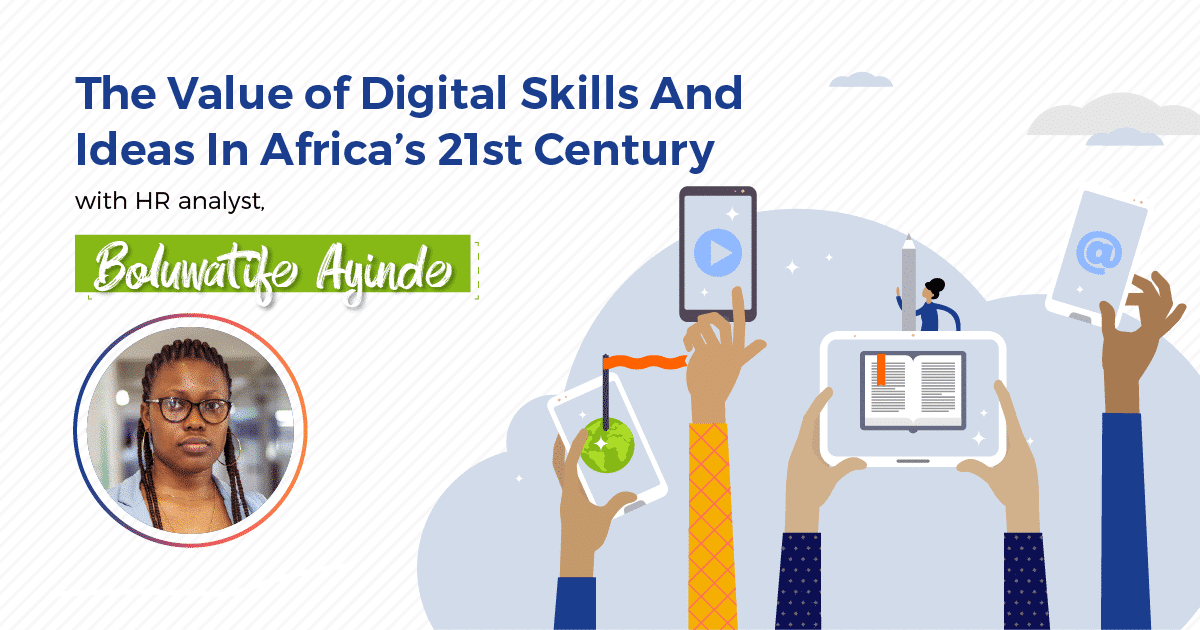
The COVID-19 pandemic has affected our lives on a scale that most of us have never experienced. As we adjust to this new way of life, there are all kinds of hurdles we must face, one of which is how to get a job in the new normal.
As every other market, the labour market has transformed. Therefore, the worst thing you can do is think that using the same techniques to get a job pre-COVID will work now, at least for the time being.
Despite this fact, there are still opportunities to prosper, which might be available to those willing to go the extra mile in order to get ahead.
In the below interview, Jobberman’s HR analyst, Boluwatife Ayinde shared insights on The Value Of Digital Skills And Ideas In Africa’s 21st Century.
Unemployment rates seem to have spiked, a lot of youth have been laid off and the roles available can’t match up to the number of jobseekers. With that being said, would you say things may have changed slightly in the way job applications and onboarding works?
I know it’s been hard for people who have been laid off. Right now, job seekers are sceptical about sending out resumes because they are afraid they wouldn’t get the job. My advice is, keep networking and applying, but be ready to change your approach. The people that will benefit from this recruitment process are the ones who were adaptable – they built relationships, advanced their skills and shared ideas with people.
Some tips to guide you:
- Get comfortable networking online: The world is online and there are numerous opportunities to network. Connect with people on LinkedIn, clubhouse, join webinars and the likes.
- Boost your skills: Employers are looking for skills, people of value amid a pandemic. Place yourself at the forefront of the labour market. Take advantage of the Jobberman soft skills training. You can take part in this by simply visiting www.jobberman.com/softskills. It will feature job opportunities, employability masterclasses, job interviews and other mind-shifting sessions.
What industries/sectors are struggling to offer recruitment opportunities? What can job seekers do to better their chances of securing a job in these areas
We have to acknowledge there is not one graduate labour market, but a very diverse labour market that differs from region to region, and this, in turn, sees various sectors being affected differently depending on where they are located.
It’s time for you to develop your digital skills as they can help you show a potential employer your ability to be flexible and adaptable. Make sure you can clearly articulate how you spent your time during the pandemic, such as working on a project, volunteering, learning a new skill, helping out in the family business, or working in your part-time job.
All of these are important and relevant to an employer as it can demonstrate how adaptable and motivated you are as a potential employee. Speaking of being adaptable, this is one of the skills we train job seekers on in our soft skills training. So you should definitely register if you haven’t registered before!
What would you suggest are the most important things to keep in mind when it comes to job hunting during the pandemic?
Right now, the buzzword is “network”. Some organizations won’t advertise their vacancies doesn’t mean they are not recruiting at the moment. Join professional groups on Linkedin, Facebook and the likes and make yourself visible. Grow your digital knowledge and get relevant skills that will keep you relevant in the workplace.
What’s your advice to people that have had to deal with job application rejections?
People need to understand that rejection isn’t necessarily a bad thing. If you haven’t received one response out of 10 applications, then I would advise you to review your cover letter and CV. There are professionals at Jobberman ready to help create a world-class resume. You need to tailor your CV to what the employer is looking for, it’s never a good thing to have a-one-CV fits all – a generic answer will lead to disappointment.
Our employees were already used to working in our fast-paced environment, so adapting to the change wasn’t so difficult. We put systems in place that assisted staff members with the whole process. Our clients and jobseekers were not left out, we used and still currently make use of a variety of platforms to deliver our online services, employer events, guidance appointments and webchats – so that they can contact us and make use of our services wherever they are.






